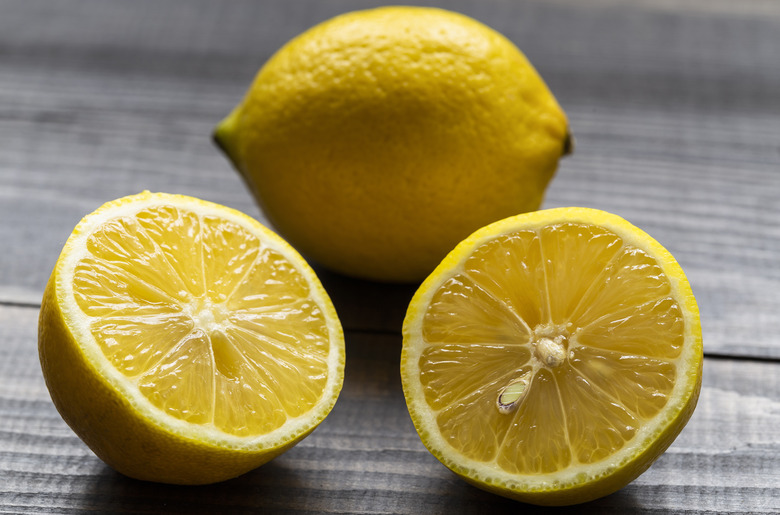What Happens If Plants Are Watered With Lemon Juice?
We may receive a commission on purchases made from links.
All plants require water to survive. Some may need it more than others, but all plants need at least a little. Plants in the desert and in temperate regions get their water mainly from rain. Spring rains give new seedlings a good soaking, the only one desert plants receive each year. In some areas, however, the watering won't do the plants much good if the rain is acid rain. See for yourself what happens when your plants are watered with a lemon juice solution.
Tip
Pure lemon juice can kill a plant, but when mixed with water, you can see the effects of acid rain on your plants. Further diluted with water, lemon juice can benefit acid-loving plants like citrus.
Acid Rain Effects
Acid Rain Effects
Acid rain occurs when pollutant gases rise into the sky and become trapped in moisture-heavy clouds. When the clouds finally burst into rainfall, the droplets carry the pollution down into the soil, streams and rivers. Though just a bit of acid rain won't do much damage, the gases create acidic soil that burns plant roots and scars trees over time. During home experiments, lemon juice provides a decent substitute for true acid rain.
Lemon Juice and Citric Acid
Lemon Juice and Citric Acid
Lemons are extremely acidic and tart. This explains that puckering feeling in your mouth when you eat them. Though the citric acid in lemon juice is a natural substance, it can still reproduce the effects of acid rain if you use enough of it on your plants.
Lemon juice won't nourish plants, at least not heavily. It will only harm them over time. Only use lemon juice if you intend to show acid rain effects in a controlled environment. The juice will not lend nutrients to garden soils.
Experiment With Lemon Juice
Experiment With Lemon Juice
Experiments always require a test and a control. The test, in this case, is the plant being watered with lemon juice. The control should be watered with ordinary water.
Both plants must receive the same amount of sunlight, be planted on the same kind of soil and in the same kind of pot. If you can place them side-by-side the in the same window, that works perfectly. Watering both with plain water at first gives both plants the chance to sprout and grow, leaving you with visible experiment results in the end.
Watering with pure lemon juice will not only kill your plant almost immediately, it won't accurately show the effects of acid rain. A mixture of 1 teaspoon lemon juice to 2 cups water should do the trick. The gases in acid rain aren't very concentrated most of the time; your lemon water shouldn't be either.
To check the pH level of the water, test both solutions using pH paper strips. If the solution containing lemon juice is above 4.0, add another drop of lemon juice. If the lemon juice solution is below 4.0, add a pinch of baking soda or a drop of ammonia to raise the pH level to 4.0. Document the pH levels as well as the date and amount of solution or water applied to the soil of each plant.
Keep track of both plants, noting when the lemon-watered sprout begins to change or stops growing as quickly as its partner. You should see plenty of additional changes from there.
Water With Lemon Juice
Water With Lemon Juice
A very dilute lemon juice solution, however, can benefit acid-loving plants. High pH water affects the ability of citrus and other acid-loving plants' roots to take up iron, resulting in nutritional deficiencies.
To reduce the pH levels of water, add 1/4 teaspoon lemon juice to 1 gallon of water and mix well. Apply to the potted plant until water drains from the bottom of the pot. Alternatively, dilute a liquid fertilizer by one-half and apply regularly to help mitigate the effects of alkaline water.
